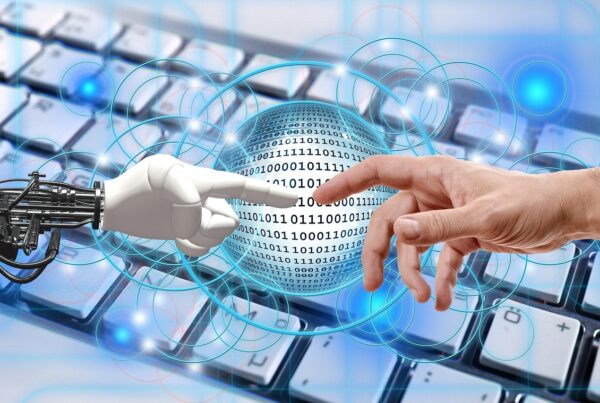#AI@Work: Differnt Segments, Different Impacts
AI is beginning to change education. It is affecting instructional approaches, tools and institutions. It is changing the future. This will impact best practices and the role of the instructor and jobs (Marr, 2018). AI has already been applied to developing workplace skills and testing. It will continue to evolve and drive efficiency and individualization, and take over redundant administrative tasks. AI will not replace instructors in the near future. It will support interactions between learners and teachers based on data and learning science. The vision for learning is one where instructors and AI work together to improve learning outcomes. It is important for the education sector to adapt AI. Current generations will encounter it in the workplace now and even more so in the future. AIEd has the potential to meet an individual’s needs. More digital tools and platforms are being developed daily. AI can identify knowledge gaps and provide feedback and remediation. AI can help to break down silos between traditional educational channels and the workplace.
AI will impact a variety of segments of many economies differently. It will affect some quickly and some more slowly. Very few will remain untouched. As this unfolds, the trick will be to stay ahead of AI’s ability to act autonomously. Learning can also help workers keep a sense of purpose and personal accomplishment in their lives (Lee, 2018). Workers will be forced to change occupations, some every few years. Currently, we are uncertain about the pace and path of automation, but many will be replaced in jobs they’ve held for a lifetime.
Education appears to be the best solution to AI related employment problems. The scale and speed of AI adaption will not provide the luxury of passive education improvement. Other scenarios like work sharing and income support have been put on the table by people like Larry Page, co-founder of Google. Undoubtably AI will have short-term and long-term effects on the labor market. AI holds the threat of long term, persistent, nonstop diffusion of jobs. Income redistribution is on the table and may solve some of the pain. Longer-term solutions for radical measures might be needed. Governments will need creativity and open minds to generate innovative solutions.
Education needs to plan. No one knows exactly how this will play out. Cognitive technologies will perform many tasks with a great deal of autonomy. It is likely that AI will create significant upheaval in job markets. New skills will be required. New jobs will be created. New opportunities will exist. What can be done is learning from the past. We can examine current jobs to evaluate the likelihood of AI automation in the near future
#AI@Work, #WFH, #Virtual Touchpoints, #ThePajamaEffect, #The Visual Connection, #BobbeGB, #BobbeBaggio, #Touchpoints, #Remote Workplace, #WorkFromHome, #PJEffect, #LinkedInNewsLive




